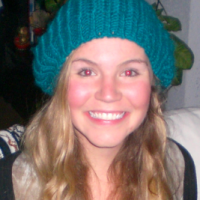During my brief stint living in Chile during my junior year of college, a Chilean friend frequently told me that he resisted traveling abroad because there was so much of his own nation he had never seen.
“See what is nearest to you first,” he advised, “and from there, you can travel further.”
While I understood his point, at the time I couldn’t help but resent this attitude. I, after all, had barely seen my own country and opted instead to spend several hours and thousands of dollars to come to South America to see his. Furthermore, this seemed easy for him to preach being from a nation like Chile, which starting with the Atacama Desert in the north to Patagonia in the south is filled with some of the most remote, fantastically beautiful places in the world. The United States, I thought, just doesn’t match up.
I was wrong.
Over the past month, I have swum in one of the clearest, deepest lakes in the world. I have driven through the tallest old growth redwoods on the planet and hiked six miles into one of the most famous canyons on Earth. I’ve seen waterfalls, hiked some of the world’s most popular trails and seen the most beautiful sunrises and sunsets of my life—including those I watched almost every night over the Pacific coast in Chile. I’ve done this all relying on a beat up 1998 Subaru for transportation and with less than $1,000 in my bank account.
Growing up I always thought road trips sounded unbelievably dull. My family never did them. Instead, we saved and took fewer trips longer distances to places like Mexico, Central America and Europe. But this summer, a combination of wanting to put off real life post-college and an uncontrollable urge that I can only describe as “wanderlust” made a road trip an enticing option to wrap up what will presumably be the last real summer of my life.
Accompanied by my best friend from Boulder, the trip began in Eugene, where I spent the last four years studying journalism at the University of Oregon. From there, we traveled to Oregon’s Crater Lake—the deepest lake in the country and the ninth deepest in the world. The water, entirely snowmelt and rainwater, is some of the purest in North America and is a deeper blue than any water I have seen in the natural world.
Crater Lake was followed by a night of camping and a day of driving through the monster trees in Redwood National Park in Northern California on our way to San Francisco then Lake Tahoe—the second deepest lake in the country. Heading south, we made our way to Yosemite National Park, which I think rivals Patagonia in terms of sheer awesome beauty and hiking and backpacking opportunities.
Though it was a little too crowded for my taste, the Grand Canyon lived up to its reputation. It was spectacular.
And finally, Arches National Park in Moab—which is only about six hours from Boulder and with the greatest density of natural arches in the world, it gave me an appreciation for geology that I never thought I would have.
When we got home, what struck us most about the trip was first, that without even meaning to, we had spent nearly two weeks straight living in this nation’s national parks—landed protected by our government so we can enjoy it. And second, it seemed like most of our neighbors at our campsites were foreigners. In fact, sometimes on hiking trails it was more common to heard Danish than it was to hear English. This didn’t seem right somehow.
This country is filled with magnificent, easily accessible places that, as Americans, we should make a priority to experience.
I do not want to discredit the unique value of international travel (as I write this I am simultaneously looking up flights to Central America), but maybe my friend was right. Maybe we need to see more of what’s around us, immerse ourselves in our nation’s own diverse culture, before hopping on a plane and traveling across the world to learn about someone else’s.
~
Editor: Brianna Bemel










Read 3 comments and reply